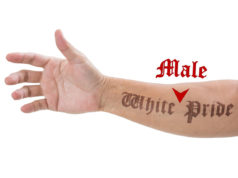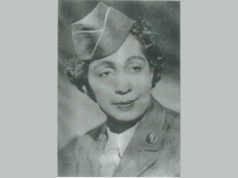Fort Worth City Council member Kathleen Hicks believes that her Eastside constituency is under assault from a powerful and virtually unregulated coalition of payday lenders and pawn shops, and she is launching a major effort to stop them — and if that means stepping on the toes of some of her council colleagues and going up against the way the council usually operates, she says she’s willing to do it.
“Payday lenders and pawn shops are nothing more than predatory lenders who prey on the poor and the unemployed,” she said in a recent interview with Fort Worth Weekly. The interest that those businesses charge (which they call fees) ranges from 300 percent to 500 percent, even 1,000 percent in some cases, she said, because they are not regulated and do not have to adhere to Texas usury law. (The only regulation pawn shops fall under is a state law that requires new ones to be at least two miles from any existing pawn shop. Relocated ones must keep a one-mile distance.)
 Hicks has an influential ally in her fight. State Sen. — and former Fort Worth City Council member — Wendy Davis has begun what she says will be a continuing effort to re-regulate the high-interest loans offered by the payday lenders, many of which operate as pawn shops as well.
Hicks has an influential ally in her fight. State Sen. — and former Fort Worth City Council member — Wendy Davis has begun what she says will be a continuing effort to re-regulate the high-interest loans offered by the payday lenders, many of which operate as pawn shops as well.
But she also has some powerful opponents.
Tonya Veasey, owner of a local public relations firm that represents two of the major pawnshop/payday lending businesses in Fort Worth, maintains that the companies provide “safe and reliable … financial services” for “underserved communities” (that is, places where banks fear to tread). She wants to see more of them in Fort Worth’s poorer neighborhoods — and the fight has already started.
In an early November pre-council session, councilman Frank Moss made a verbal request that the council consider a citywide zoning change that would allow pawn shops and payday lenders to open for business in low-intensity commercial zones adjacent to residential neighborhoods, areas where they are now prohibited by a city ordinance passed just three years ago. He did not return calls from the Weekly seeking his reasons for making the request.
The proposal, scheduled for a vote in mid-December, has the support, so far, of Far Northwest Side councilman Carter Burdette and Mayor Mike Moncrief. At a recent council meeting, Burdette called such companies “good financial institutions … that provide a needed service.”
But the proposal does not have the support of the city planning department staff or its former head, now Assistant City Manager Fernando Costa, who said in an e-mail, “We’ve advised the council against … making the zoning ordinance more permissive” in respect to pawn shops/payday lenders.
Hicks, who represents low- to moderate-income neighborhoods, is outraged by descriptions such as Burdette’s and Veasey’s. Without regulation, there is no place in state government where those who have been abused by the practices of such businesses can even file a complaint, she pointed out. “Vulnerable people get caught up in a vicious cycle of debt that they can never get out of.
“I work every day trying to develop an area that has been red-lined by banks, and I will not rest until we can get legitimate financial institutions into my district,” she continued. “We don’t need more payday lenders – we need less.”
Davis said the industry does serve a purpose, but the problem is that “it is unregulated, allowing lenders to charge exorbitant interest rates and engage in the most reprehensible debt collection practices.”
The industry is “one of the most powerful and heavily funded lobbying groups in the state,” she said, “while those who fall victim to its abuses are powerless.”
Davis introduced several bills this past legislative session that would have put the payday lending industry under strict regulatory control. None reached the floor of the Senate for a vote. But she was not deterred. “I will continue to work on this in the next session and the next until we finally do what we should be doing for the families of Texas,” she said.
Her job – and Hicks’ — may be harder than ever, however, thanks to Gov. Rick Perry’s appointment early this year of Cash America International vice president William White to chair the Texas Finance Commission, the policymaking body for the state agencies overseeing banking, the savings and loan industry, mortgage leasing institutions, and the Office of Consumer Credit Commissioner.
On the local level, Moss allegedly is spreading the word that he has the votes to pass his proposal — another reason for Hicks’ anger. “This whole thing has been negotiated in back-door maneuverings, which is the norm for this mayor and council,” she said. “There is not a lot of public discussion anymore, on this or any other issue critical to the public. … Where is the public process? People need to be involved in these issues that affect their lives, but when things are being decided in the back rooms, the public loses. … We have to make sure everything is occurring in the public eye.”
The zoning prohibition was imposed by the council at the request of city staff and the zoning committee in 2006. The ordinance removed pawn shops (and pawn shops that also operate as payday lenders) and certain other businesses such as massage parlors, tattoo shops, and golf driving ranges from areas zoned “E” neighborhood-commercial and “MU-1” low intensity mixed-use.
Dana Burghdoff, deputy director of the city planning department, said the purpose was to keep out businesses that could have an unhealthy effect on adjacent residential neighborhoods. Those already operating at the time of the zoning change were grandfathered with restrictions: They cannot expand nor can they reopen if 75 percent or more of the building is lost to a fire or natural disaster. If the business closes its doors for two consecutive years or allows the building to be used for some other purpose, it loses its grandfathered protections, Burghdoff said.
The owners of Fort Worth’s pawn shops and payday loan offices have been lobbying the council to overturn the zoning change ever since it passed. Now they have a formidable spokesperson in Tonya Veasey. She is the wife of State Rep. Marc Veasey, a Democrat who in the last four years has received $3,400 in campaign contributions from payday loan industry political action committees, according to the Texas Ethics Commission. He received approximately $200,000 in total campaign contributions during that same time period.
Tonya Veasey, founder and president of the PR firm Open Channels Group, declined to be interviewed for this story, but she said in a lengthy e-mail sent to council members that her clients, Cash America — with reported revenues of more than $1 billion in 2008 – and First Cash Pawn, are simply “good neighbors” who want the prohibition lifted for the good of the community. Otherwise, she wrote, “our communities could be faced with permanently losing their only lifeline to financial services,” which would impose “an unfair burden on the residents of underserved neighborhoods.”
Cash America vice-president Alex Vaughn said he believes what Moss is proposing would only allow the loan businesses to rebuild after a disaster and not expand to new locations. He wrote in an e-mail that the closure of one of its stores due to a disaster would be unfair to the company and would “hurt its customers,” many of whom have no credit and turn to the pawn shop/payday loan industry to help them through financial emergencies. Cash America wants to return to the original ordinance that allowed rebuilding or relocating if disaster strikes, he said. The change would not create an opening for new stores to locate in the commercial neighborhoods, he said.
But Costa, Hicks, and Burghdoff all said that is exactly what could happen.
If the city were “again to permit pawn shops by right within ‘E’ neighborhood-commercial districts” new pawn shops could open in any of those districts, Costa said, with the only restriction being the two-mile separation between new and old shops required by the state.
“The floodgates will open,” Hicks said, not only to more pawn shop/payday loan storefronts but also to the other types of businesses affected by the 2006 ordinance. “They could rightly demand that their businesses also be removed from the prohibited list,” she said.
Burghdoff agreed. She said that is one of the reasons the staff is opposing the citywide zoning change, recommending instead that any zoning changes be done on a case-by-case basis.
Currently 34 pawn shops, more than half of them owned by Cash America or First Cash Pawn, both of which offer payday loans as well as pawn services, are licensed by the Fort Worth Police Department, according to the city staff.
But those numbers may not tell the full story. Fort Worth Police Officer Roy David Gilfour of the pawn shop detail said any payday lender that takes jewelry or gold in exchange for a cash loan must be licensed by the police as if it were a pawn shop. “We don’t know how many of these are operating or even how many know they need to get a license,” he said. The phone book lists more than 100 payday lenders operating within the city.
“My district has a disproportionate number of these predators, and I don’t intend to let any more come in,” Hicks said.
Northside council member Sal Espino wrote to the Weekly in an e-mail that his constituents, too, are “concerned about an over-concentration of pawn shops” in their part of town. If Moss’ proposal would allow additional pawn shops on parcels other than where they are now located, he said, “that would … meet my opposition.”
No other council member responded to requests for interviews.
Davis, who is in her first term as a state senator from Fort Worth, does not want to shut the payday loan/pawn shop industry down. For some struggling families, she said, the payday loan is often a last resort. But she wants the industry to be regulated. She believes the Fort Worth council needs to be educated on the “predatory payday loan” abuses and how the industry came to be unregulated, she said.
Until 2005, the state’s Office of Consumer Credit Commissioner regulated payday loans, along with loans for autos, home improvements, and manufactured housing. But that year, the payday lenders found a loophole that allowed them to register with the state as “credit service organizations” to avoid Texas usury laws. Credit service organizations, which, ironically, are designed to help folks clean up their credit and get out of debt, are not regulated, Davis said. All they have to do to operate in Texas is to pay a $100 yearly fee to the secretary of state.
Today, more than 3,500 “credit service organizations” are registered in the state, the online newspaper Texas Tribune recently reported. These businesses skirt the usury laws by calling their exorbitant charges “fees” rather than interest. There are no limits on the fees, which are so excessive, Davis said, that a $300 loan will often wind up costing the customer more than $1,000 before he or she can pay it back. When customers can’t pay the loan off on time, the lender simply rolls it over, tacks on fees ranging from $200 to $1,500 each time (depending on the size of the loan), and soon borrower are in so deep that they can’t get out.
Because these CSOs “also slip outside the boundaries of the federal laws” that put strict limits on loan agencies’ collection practices, the threats they make to customers who get behind in their payments are “reprehensible,” Davis said.
The bills she co-authored with State Sen. Eliot Shapleigh of El Paso would have capped interest rates by payday lenders at 36 percent, forced them to submit information on all of their transactions to a state database that would then be sent annually to the legislature, and put the lenders under strict state regulatory control. All of the measures died in the Senate Committee on Business and Finance.











